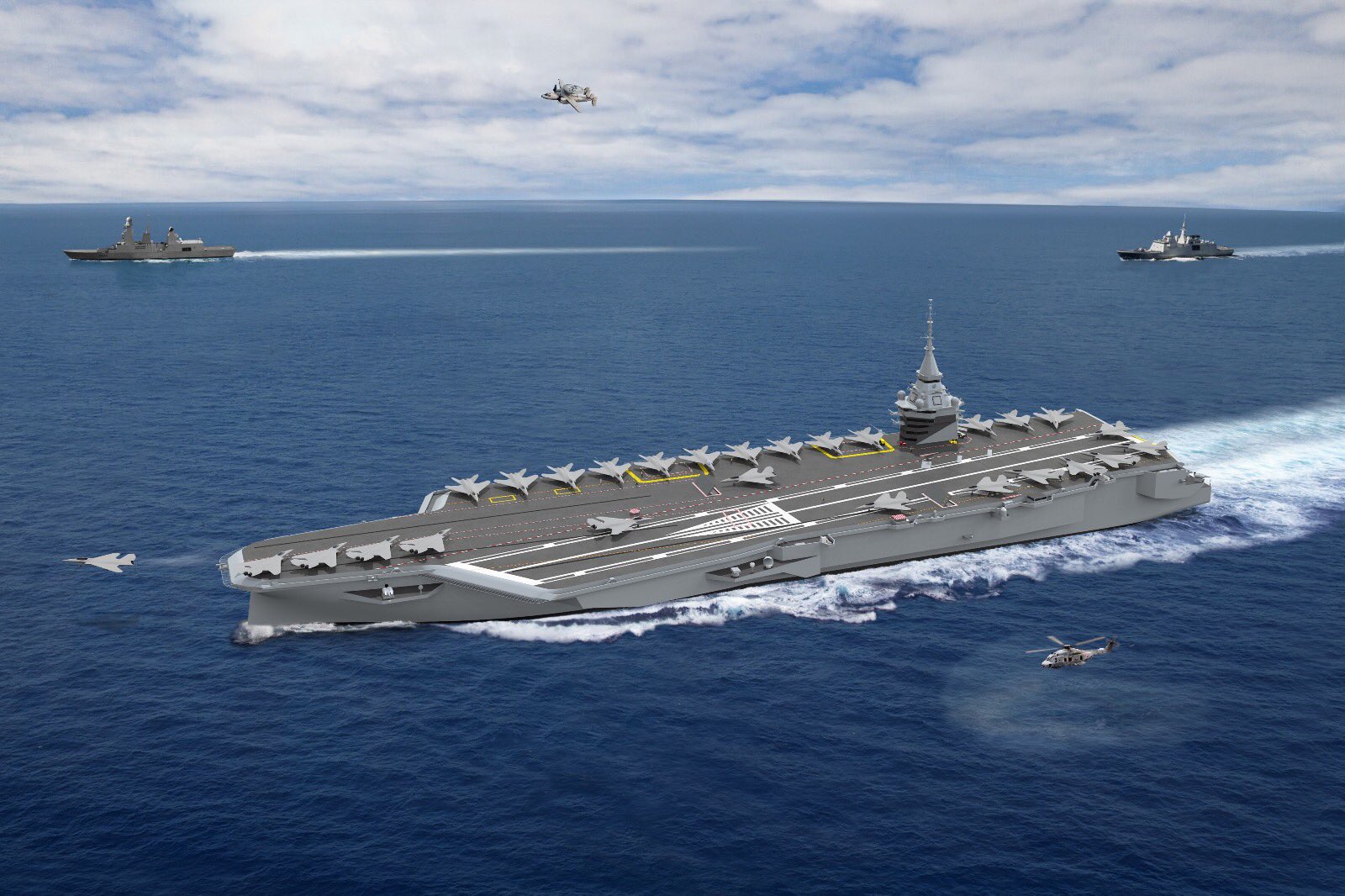- Reaction score
- 146
- Points
- 710
US Navy will love, proper carriers too:
Mark
Ottawa
President Macron Announces Start of New French Nuclear Aircraft Carrier Program
French President Emmanuel Macron today officially green-lighted the construction of a new nuclear-powered aircraft carrier as part of the PANG program. The future flagship of the French Navy is intended to replace the existing FS Charles de Gaulle (R91) aircraft carrier around 2038.
The announcement was made during Macron’s visit to French nuclear power company Framatome, which designs and supplies nuclear steam systems and services.
“Charles de Gaulle, as you know, will come to the end of its life in 2038. This is why I have decided that the future aircraft carrier that will equip our country and our navy will be nuclear-powered like the Charles de Gaulle,” Macron said. “Your plant in Le Creusot, which has been producing parts essential to our navy for a long time, will produce, among others, several major parts of the nuclear boiler of the future aircraft carrier by forging and machining them right here. … By these choices, we confirm France’s desire to preserve its strategic autonomy.”
In October, Framatome announced the launch of Framatome Defense to promote the company’s defense activities. Framatome has supported the French defense sector for decades with a focus on components of the French Navy, notably for submarine programs and Charles de Gaulle. The company also contributes innovation for major ongoing programs such as the Barracuda-class nuclear attack boat and the French Navy’s next-generation ballistic missile nuclear submarine program (SNLE3G).
As Naval News reported previously, the PANG (Porte Avion Nouvelle Generation, or next-generation aircraft carrier) will be much longer and much heavier than the existing Charles de Gaulle.
It will have a length of 990 feet, a width of 40 meters and a displacement of 75,000 tons. The first steel cut is set for 2025, while sea trials are slated to begin in 2036 and commissioning with the French Navy in 2038, which matches the expected decommissioning of the Charles de Gaulle.
The initial artist impressions released by Naval Group confirm some of the technical details, which Naval News has been reporting since July:
Nuclear-powered (CVN) with two K22 reactors (2 x 220 megawatts thermal)
Length between 940 and 970 feet
Full load displacement around 70,000 – 75,000 tons
Maximum speed: 26 to 27 knots (similar to Charles de Gaulle)
Propulsive power would be around 80 megawatts delivered to three or four shaft lines
Total power around 110 megawatts, including the electrical plant
Future air wing: 32 next-generation fighters with two to three E-2D Advanced Hawkeyes [emphasis added, eat your heart out RN] and a yet-to-be-determined number of unmanned carrier air vehicles
Two side elevators with 40 tons lifting capacity
Three 300-foot electromagnetic catapults (EMALS) by General Atomics
Flight deck: 3.9 acres
Aircraft hangar: 54,000 square feet
Crew: 900 and 1,080 sailors (not including the air element of 550 to 620 sailors) with higher comfort compared to Charles de Gaulle.
Thales SeaFire radar
Principal Anti Air with MBDA Aster surface-to-air missiles for self-defense
The artist impression seems to show the presence of the new RapidFire Close In Weapon System (CIWS) as well.
France is set to invest $1.2 billion in the initial development of the carrier. Local press has reported the carrier could cost upwards of $6 billion, but French officials have declined to confirm the cost estimates, according to Reuters.
A version of this post originally appeared on Naval News. It’s been republished here with permission.
An artist’s impression of PANG (Porte Avion Nouvelle Generation, or next-generation aircraft carrier).

https://news.usni.org/2020/12/08/president-macron-announces-start-of-new-french-nuclear-aircraft-carrier-program
Mark
Ottawa


